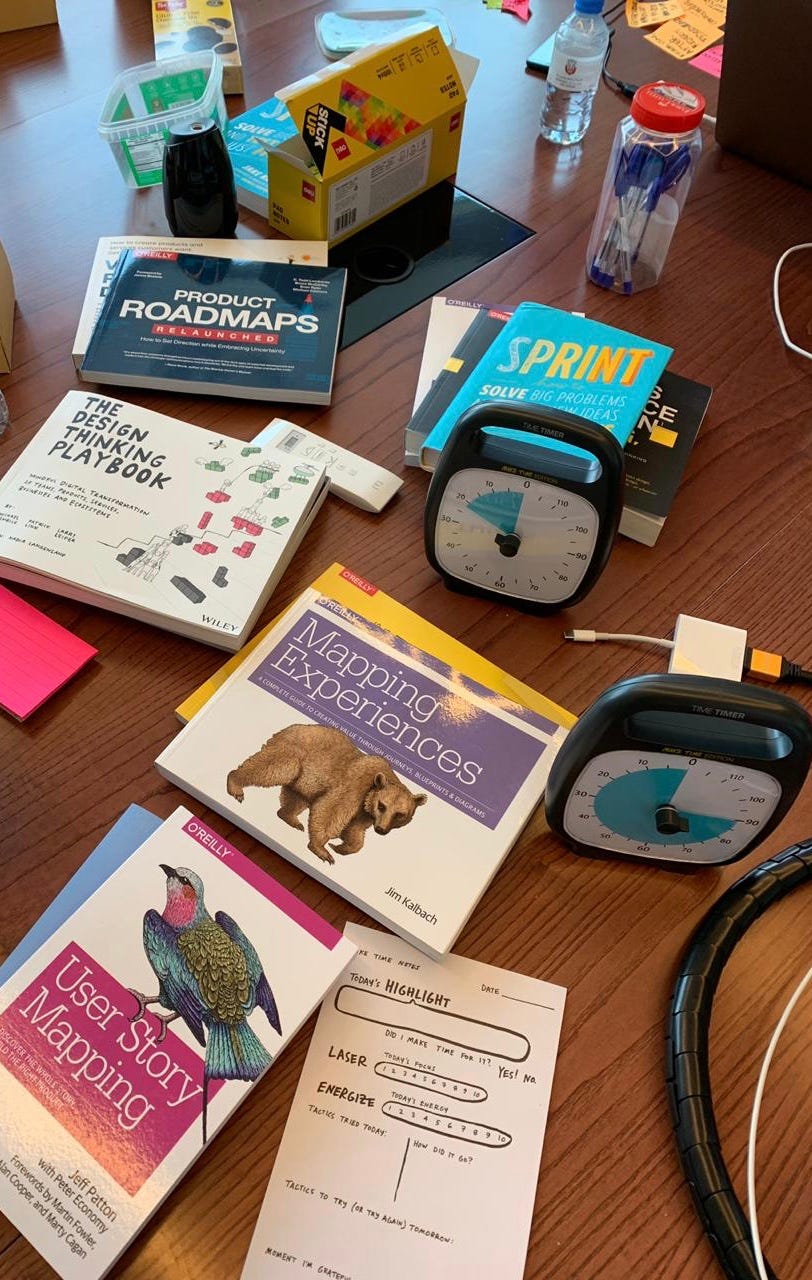To drive internal change you need to enable people to make better decisions
The books, rooms, timers, post-its, fancy tech, and even workshops aren’t enough to drive change.
Let me explain:
I worked many years ago on setting up an innovation lab, (you know, the break things, move fast kind) which while it delivered good (not great) experiences for customers, it failed to deliver real lasting change within.
My goal was to cause change within, to get others involved, to enable them to make better decisions, and to make the lab and myself redundant.
Ultimately that didn’t happen on the scale I wanted.
In my search to understand what happened, I started to invest more of my time to truly understanding people, psychology decision making and ultimately to start applying behavioral science 🧬 in my work (and life)
These are 3 lessons I learned: (by no means the only ones)
1. You can make the rooms in organizations as “startupy” as you want, and buy the fanciest software, however, if the people aren’t more intrinsically motivated to new ways of working, it won’t in the end drive the change you are looking for.
💡Tip: Know where your colleagues are in the motivation continuum, and go from there.
2. Understand the real outcomes/needs of your employees.
What “job” are they trying to get done, how do they do it today, in what context.
💡Tip: Don’t impose your solutions on them, because you think they are better, as you probably don’t know enough.
Just because people don’t adopt what you make, doesn’t mean they are wrong in doing so, you have probably missed something.
3. Design with behavior in mind.
To help enable people to make better choices, you have to understand what they are doing today, what behaviors matter, and what is stopping them. At work, it might be skills or knowledge, or it could be a lack of time, resources, or lack of confidence in doing something.
If you don’t know, you won’t address the right barriers, and your solutions will fall flat.
💡Tip: Build a logic model to understand actors, context, system, behaviors, barriers, and solutions.
Ultimately:
Think less in solutions and more in outcomes.
Think less in technology and more in psychology.
Think less in terms of “fixing people” and more in enabling them to succeed.
Go Learn:
-Jobs to Be Done
-Psychology
-Motivation Theories
-Behavioral Science
-Human Centred Design
-Systems Thinking
-How your brain works
Go Build
-A Tool box with the things you learnt, as you can’t possibly remember it all.
Go Apply
-What you learn and enable yourself and others to make better decisions, both at work and at home.
And do change for good!
P.S - Skip learning the cognitive biases, cause you think that is gonna help you trick people to buy your stuff.
We as people aren’t irrational, or unsophisticated, we are in fact amazing 🤩 and although our environment sometimes may not play to our favor, we pick up on trickery quite easily 😁.



